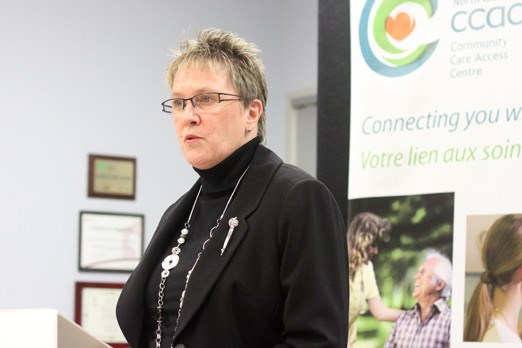The North West Local Health Integration Network has received $3.6 million to reduce emergency room visits and increase addiction services in Thunder Bay and the region.
The money, provided by the province, is for community initiatives that will alleviate pressures on emergency rooms and other levels of care.
North West LIHN CEO Laura Kokocinski announced Thursday afternoon that $1.7 million of the funding will go towards maintaining the Community Care Access Centre’s Home First program, which aims to move seniors more quickly from the hospital back home with the help of homecare supports like nursing, physiotherapy and occupational therapy.
“Having more homecare services and more supports in the community is going to allow people to leave the emergency department and go home with those supports,” she said. “That will reduce then the readmissions that are coming back into the hospital.”
Kokocinski said they have seen a 20 per cent reduction in the amount of people going to the emergency room through Home First and wait times for long-term care beds have dropped 11 per cent over the last year.
This has been done by enhancing homecare, assisted living services and supportive housing services.
“So people are looking at a different level of care that they’re requiring rather than going into a long-term care facility,” Kokocinski said.
St. Joseph’s Care Group youth addiction services received $128,000 for an opiate dependency treatment program for youth aged 16-24.
The outreach program will allow SJCG to go into the community and work with young people wherever they are.
“We’ll be working closely with Shelter House and with the Thunder Bay police and the whole purpose of this program is to actually engage youth in a different kind of way,” said Nancy Black, concurrent disorder services director.
“We’re meeting them where they are at, trying to figure out what they need and how we can help support and link them to services and supports that might be helpful to them.”
Black said the approach will take them out of the office and the program will also help identify other issues the youth might have aside from substance use.
“It’ll also look at their whole life story and provide them with the other supports they may need just to get back on their feet and get some stability back in their life,” she said.
The $3.6 million also includes funding for opiate dependency treatment for pregnant and parenting mothers in Thunder Bay, Kenora and Sioux Lookout.
